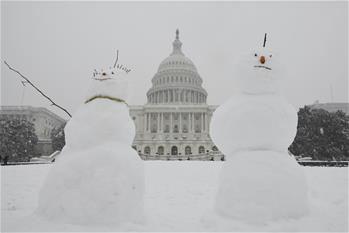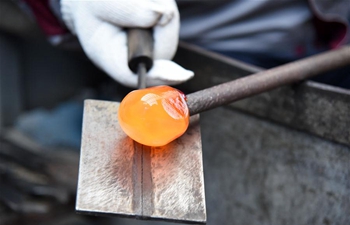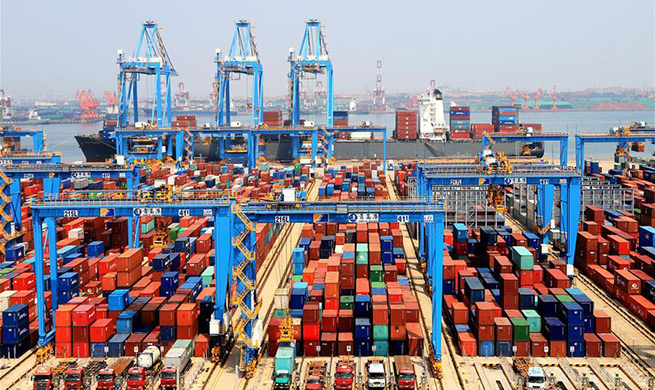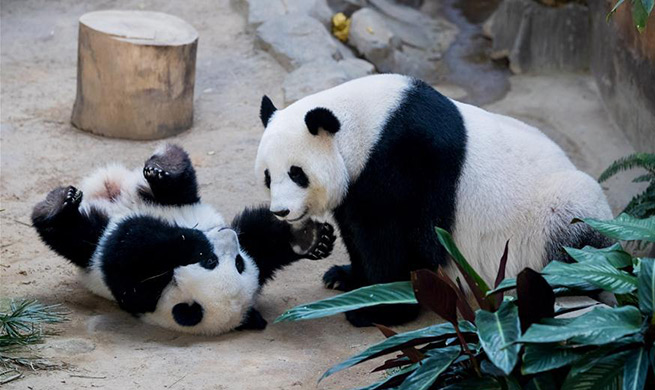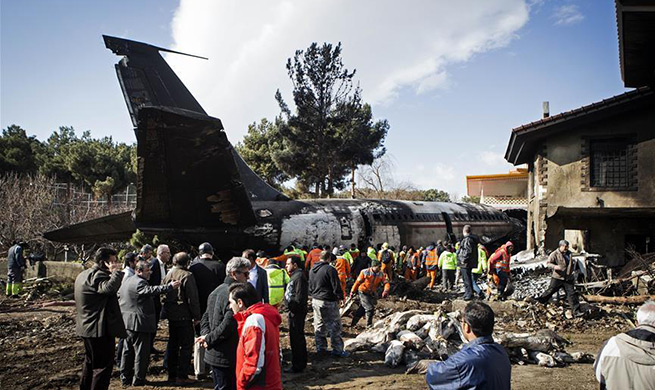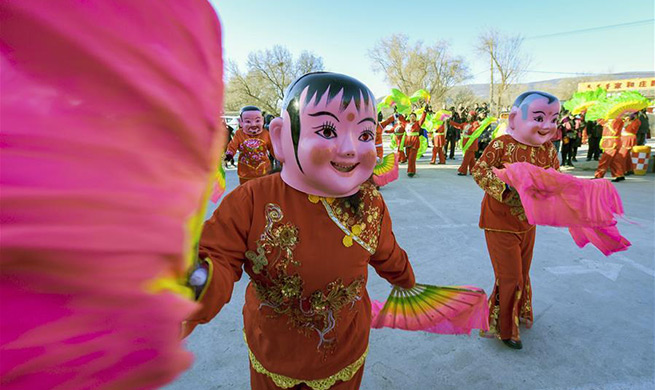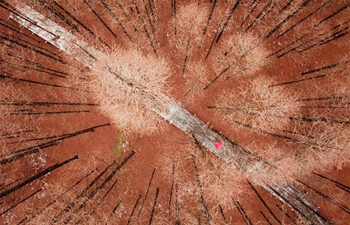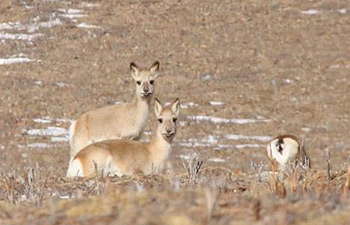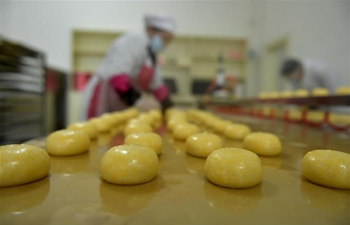NAKURU, Kenya, Jan. 14 (Xinhua) -- Charles Ruto, a Kenyan farmer, has for the last four decades practiced beekeeping as a means to broaden his revenue streams.
With 164 traditional hives, the smallscale farmer from Kuresoi, Nakuru County has earned himself an extra income through selling honey to raise his family.
But change in weather patterns has not spared his treasured vocation despite beekeeping being championed as a viable alternative to drastic drop in crop production due to effects of climate change.
"For years I have known bees to be my farm since they provided me with a produce to sell," Ruto told journalists at his farm.
"But I can no longer put all my hopes in selling honey to provide for my family. It is simply impossible with these rains that come this month and next month it is dry," he added and revealed he has now taken up maize and potato farming.
In the last decade, Kenya has experienced periods of severe drought resulting to an extreme fall in harvests, exposing more than 2.6 million people to hunger.
In 2017, President Uhuru Kenyatta declared drought a national disaster following a prolonged drought affecting at least 23 out of 47 counties.
Kenya is largely an agriculture-driven economy with more than 80 percent of the population engaged in farming activities either directly or indirectly.
With shift in climatic conditions, hundreds of farmers are opting for climate resilient alternatives, beekeeping being one of them.
However, Ruto emphasizes that little to zero rain means lack of nectar, a key ingredient in the making of honey.
When there's enough rain, he collects honey three times a year, he said. This is in contrast to one-time honey harvesting when the rains come less than four months a year.
He has erected hives in a woodland of indigenous trees which bloom with nectar when there is enough rain prompting a high production of honey.
Ruto said he collects up to 25 liters of honey per harvest from each hive in good season. This amount drops to as little as a quarter of a liter in bad weather.
"Sometimes you don't harvest at all when there is little rain for more than seven months. You can't have enough nectar if it rains for instance June to July then stops or rains for one month then discontinues for three or four months," he said.
"Bees relocate when they can't find enough food to feed on," he added. Although, he tries to entice them with sugar syrup, they still flee to areas with an abundance of nectar, he said.
Experts warn that drought coupled with deforestation and poor farming practices is causing a decline in honey production in the country.
"Use of pesticides and degradation of land threatens beekeeping in Kenya," said Stephen Kagio, chairman of Apiculture Platform of Kenya.
"Pesticides poison bees (when they feed on flowers to fetch nectar) and with time their populations dwindles (as they keep on dying upon consuming the chemicals used to counter pest attacks in crops)," he added
Muo Kasina, director of National Sericulture Research Center, said drought has direct negative effects on bees' food resources since it affects flowering periods.
"In addition, bees need a lot of pollen for their youngness, without flowers, there are no pollen hence populations of bees reduce," said Kasina.
Kasina identified planting indigenous plants, growing a variety of flowering plants and practicing farming free from use of pesticides as some of the strategies to boost beekeeping in Kenya.


